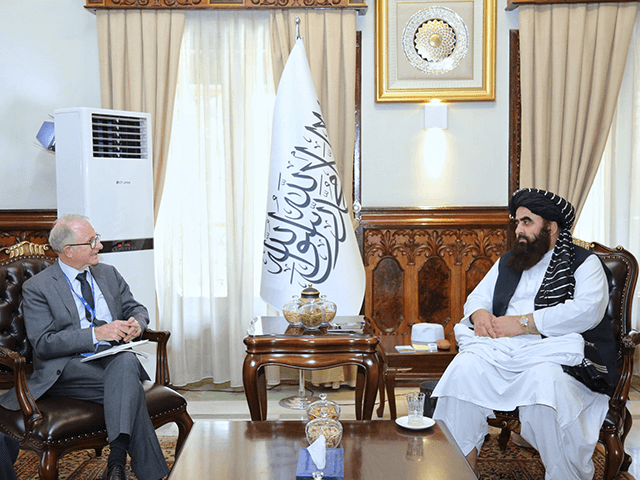The United Nations special rapporteur for human rights in Afghanistan, Richard Bennett, met with senior Taliban leaders on Tuesday to discuss the ongoing humanitarian catastrophe in the country, legitimizing the Taliban with treatment as a formal state power.
Reports citing Taliban spokesmen relay that “foreign minister” Amir Khan Muttaqi and “deputy prime minister” Abdul Salam Hanafi used the opportunity to claim that the jihadist terror organization was respectful of the rights of citizens and that the widespread reports of extrajudicial killings, torture, and other atrocities — many documented by U.N. agencies — were “Facebook rumors” that the U.N. should not concern itself with.
Taliban terrorists took over Afghanistan in August 2021, following left-wing American President Joe Biden’s decision to extend the 20-year Afghan War beyond the May 2021 deadline agreed to by the administration of predecessor Donald Trump. Following the extension of the war, the Taliban, which agreed to the deal with the Trump administration, launched a nationwide assault that culminated with then-President Ashraf Ghani fleeing the country and surrendering the capital to the Taliban.
Ghani still claimed to be president of Afghanistan as recently as of August of this year, though he has no functional authority in the country. The Taliban and its affiliates in the Haqqani Network, a notorious terrorist association that links the Taliban to al-Qaeda, control every Afghan government agency and are experiencing no significant resistance to their stranglehold on power.









